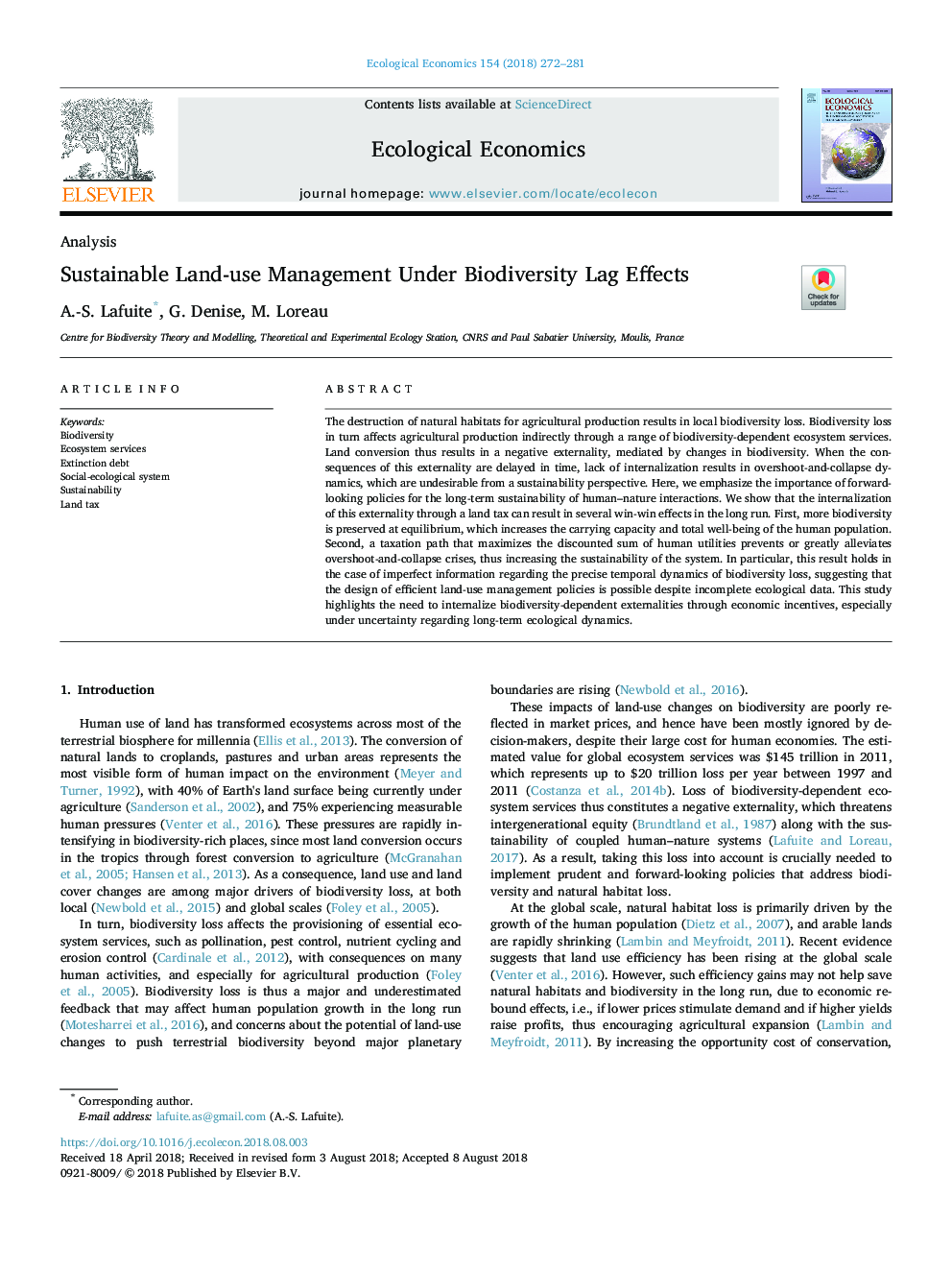| Article ID | Journal | Published Year | Pages | File Type |
|---|---|---|---|---|
| 11004751 | Ecological Economics | 2018 | 10 Pages |
Abstract
The destruction of natural habitats for agricultural production results in local biodiversity loss. Biodiversity loss in turn affects agricultural production indirectly through a range of biodiversity-dependent ecosystem services. Land conversion thus results in a negative externality, mediated by changes in biodiversity. When the consequences of this externality are delayed in time, lack of internalization results in overshoot-and-collapse dynamics, which are undesirable from a sustainability perspective. Here, we emphasize the importance of forward-looking policies for the long-term sustainability of human-nature interactions. We show that the internalization of this externality through a land tax can result in several win-win effects in the long run. First, more biodiversity is preserved at equilibrium, which increases the carrying capacity and total well-being of the human population. Second, a taxation path that maximizes the discounted sum of human utilities prevents or greatly alleviates overshoot-and-collapse crises, thus increasing the sustainability of the system. In particular, this result holds in the case of imperfect information regarding the precise temporal dynamics of biodiversity loss, suggesting that the design of efficient land-use management policies is possible despite incomplete ecological data. This study highlights the need to internalize biodiversity-dependent externalities through economic incentives, especially under uncertainty regarding long-term ecological dynamics.
Keywords
Related Topics
Life Sciences
Agricultural and Biological Sciences
Ecology, Evolution, Behavior and Systematics
Authors
A.-S. Lafuite, G. Denise, M. Loreau,
